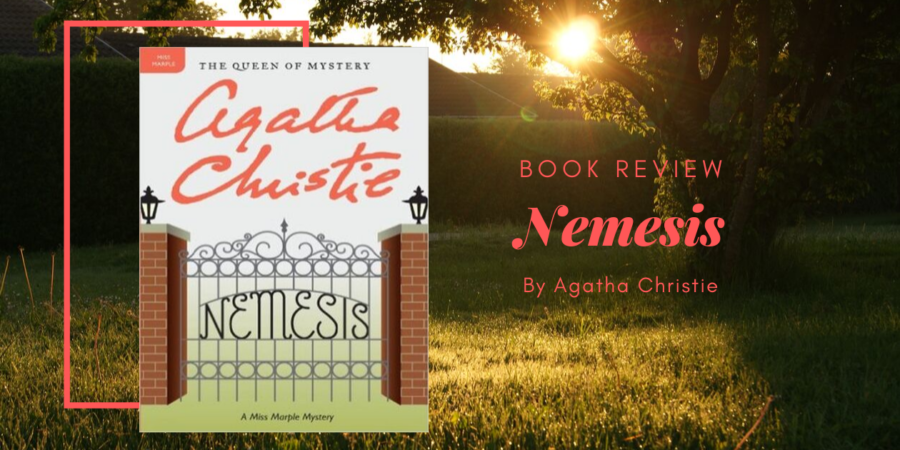Since I have been starting to enjoy Miss Marple, I decided to get another one of her books. This time, intrigued by the blurb where Miss Marple receives a request from an acquaintance to “investigate a crime after his death”, I borrowed Nemesis.
After Amos Rafiel dies, Miss Marple receives a notification of an inheritance – if she investigates a mystery. Unfortunately, Amos Rafiel refuses to give her any details, instead sending her off on a tour and arranging for friends to put her up. Miss Marple has to determine who is involved, what crime there is, and why Rafiel took such a personal interest in this.
As a mystery, this was pretty interesting. Miss Marple is essentially working from nothing and although Rafiel is guiding her from beyond the grave (I did wonder if he solved it before he died and wanted proof but apparently not), she basically has to question everything. I quite liked how the mystery turned out and enjoyed finding out the bits and pieces with Miss Marple/
That said, the book felt extremely dated in a way that the Poirot novels did not. In general, I am aware that Christie wrote in a very different era but I don’t do double-takes much while reading. This time, however, three things stood out in a rather negative way:
- There was liberal use of the word “old pussy” to describe old women. Miss Marple even uses it to describe herself! It definitely reminded me of the fact that language changes so much over time.
- A bit more concerning was the xenophobia that Miss Marple had. In a way, it’s not very new as Poirot also encounters quite a bit of xenophobia/othering in his books. But this is the first time you see a main character express such unpleasant thoughts – I don’t really know when the book is written but I wonder if it’s Christie poking fun at the fact her other famous character was a foreign detective or if she’s expressing some of her dislike for Poirot through this (I was aware that he wasn’t her favourite character).
- Most concerning was the fact that it was expressed two times that ‘modern girls’ basically make false rape accusations. To make it worse, the characters who express this notion are respectable characters. I am extremely disappointed in Agatha Christie, to put it lightly. This is the only time I’ve seen it in her books, so it caught me by surprise. The only part that balances it out is that she has a character also talk about how the law is far too lenient about rape because “they let them off with a—I forget what they call it—a suspended sentence, something of that kind. If these boys were sent to jail at once, it would perhaps warn them off that type of life.” That is, sadly, an attitude that still exists today. I hope
I’ve got to admit, the three things, especially the false rape accusation thing, makes me not want to read any more Miss Marple. While I am intrigued by her adventure with Amos Rafiel, the rape apologia passages are very distasteful (even with one passage against the lenient rape sentences). I understand that the opinions of characters may not reflect the opinions of the authors, but I wonder which side Agatha Christie stands on.
If you’re familiar with the Miss Marple series, please let me know – is this normal? Or is this book a one-off?

Shame about the issues in this one- I’ve never read a miss marple book and don’t know enough about Agatha Christie in general to say whether this is normal for her stuff.
I haven’t seen this in her Poirot books so this was an unpleasant surprise ):
I haven’t read many of the Miss Marple stories. Maybe one or two and it was so long ago. I imagine some of what the issues are in this can be related to the attitude of the time period it was written, not that it’s an excuse. I haven’t read this one. It really is disappointing and would bother me as well.
That’s possible. It is disappointing because she doesn’t typically date herself in this way.